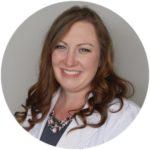
Do you often enjoy going to sporting events, concerts, plays or musicals?
If you’re from Pittsburgh, chances are that you’ve been to a sporting event! Go Pens!!
Did you know the damaging effects our environment can have to our hearing? While you’re in the middle of rooting on your favorite team it is unlikely that you’re thinking about the loudness of the environment around you. The cheering, music, clapping, and screaming are all apart of the excitement!
Occupational Safety and Health Association (OSHA) defined noise-induced hearing loss as:“hearing loss that can be temporary or permanent. Temporary hearing loss results from short-term exposures to noise, with normal hearing returning after a period of rest. Generally, prolonged exposure to high noise levels over a period of time gradually causes permanent damage.”
SO HOW LOUD IS TOO LOUD?
The facts: with 85 decibels (dB) you must limit your exposure to 8 hours per day, unprotected. However, clapping at a play or musicals can reach 97dB which limits your recommended exposure to 30 minutes.
Let’s talk sporting events my fellow Pittsburgers. Going to a hockey, football, baseball, or basketball game can reach past 100dB if the crowd is going wild: you should only be exposed for 15 minutes.
Concerts can reach almost 120dB (WOAH), depending on where you are sitting and the limit to that exposure should be SECONDS.
WHAT SHOULD YOU DO?
Consider the following:
- Do you already have hearing loss?
- How often do you attend these type of events?
- How close to the speakers are you sitting?
- Are you wearing hearing protection?
While everyone should wear hearing protection when being exposed to loud noise, it is extremely important for those who already have hearing loss to protect their hearing. Many hearing protection options are available such as foam earplugs, wax plugs, and custom noise-protection earplugs.
Want more hearing resources? Subscribe to our audiology newsletter.
[dt_divider style=”thin” /]
By Megan Myers, AuD, CCC-A

